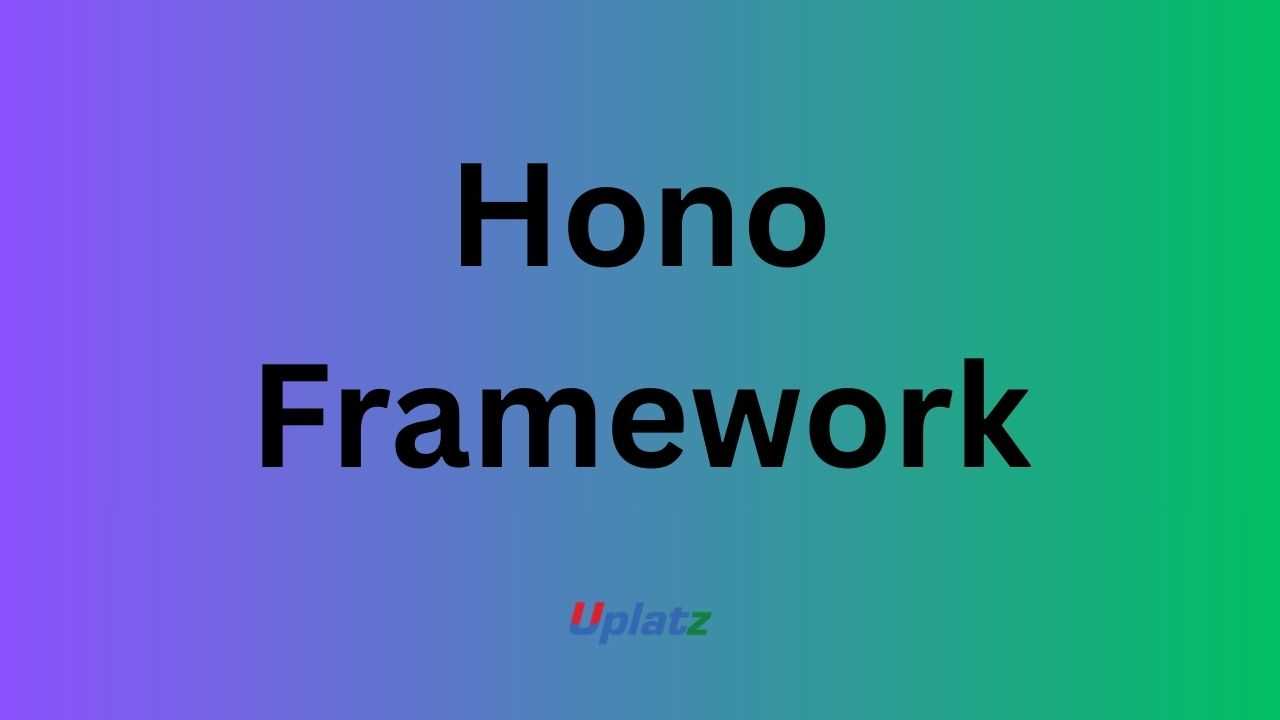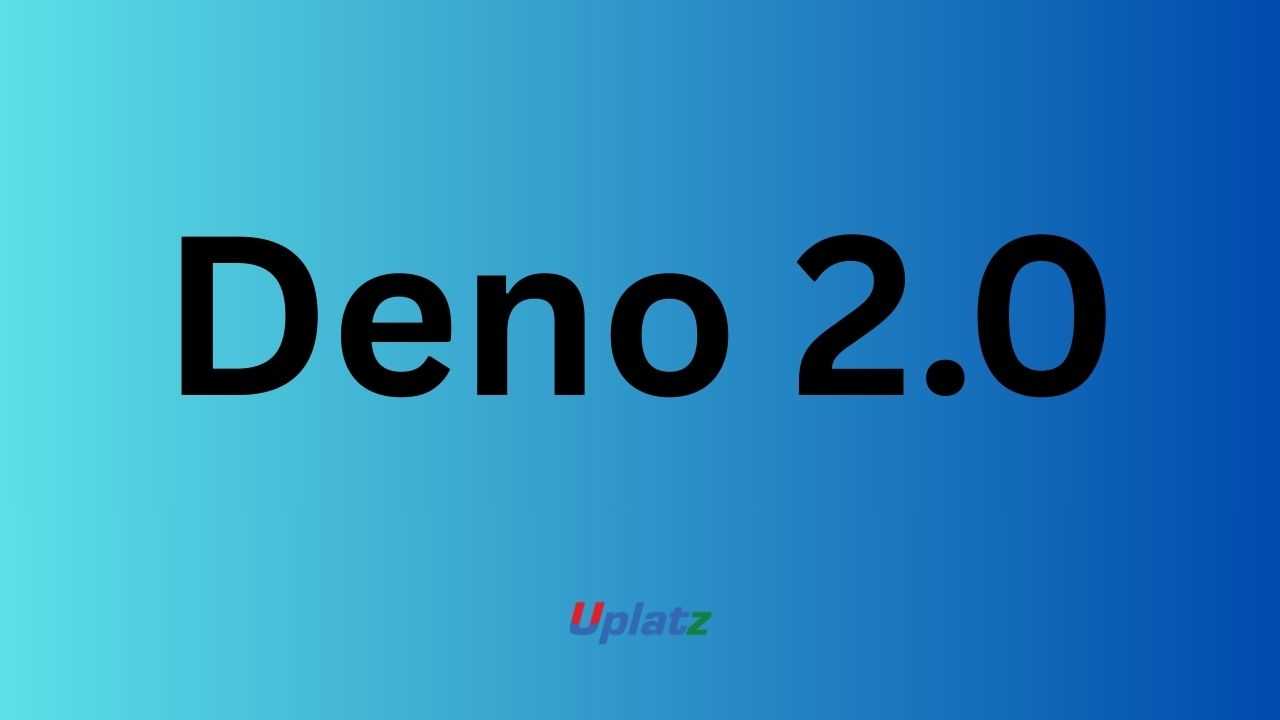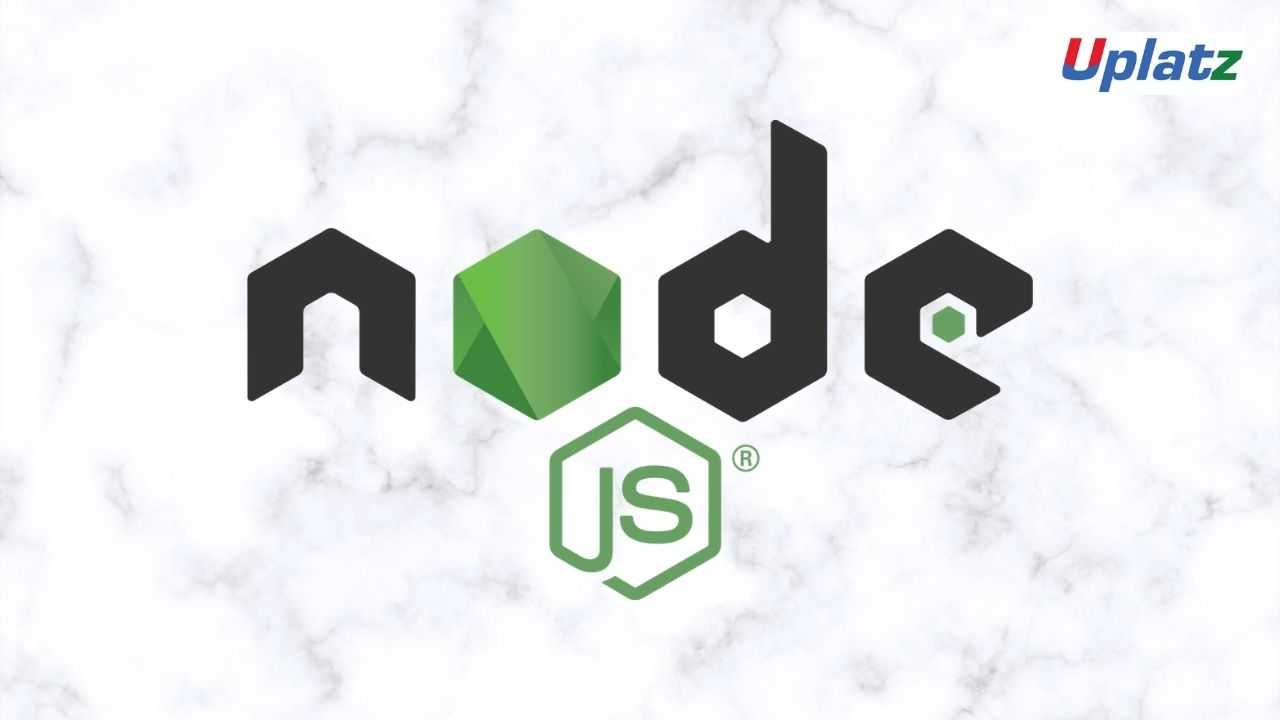Hono Framework
Master Hono to build ultra-fast, modern web applications and APIs with TypeScript and JavaScript. Price Match Guarantee
Full Lifetime Access
Access on any Device
Technical Support
Secure Checkout
Course Completion Certificate
Price Match Guarantee
Full Lifetime Access
Access on any Device
Technical Support
Secure Checkout
Course Completion Certificate
 97% Started a new career
BUY THIS COURSE (
97% Started a new career
BUY THIS COURSE (GBP 12 GBP 29 )-
 86% Got a pay increase and promotion
86% Got a pay increase and promotion
Students also bought -
-

- Bun Runtime
- 10 Hours
- GBP 12
- 10 Learners
-

- Deno 2.0
- 10 Hours
- GBP 12
- 10 Learners
-

- Node.js
- 21 Hours
- GBP 12
- 1896 Learners

-
Understand Hono’s core principles and edge-first design.
-
Build APIs and web apps with TypeScript and JavaScript.
-
Implement routing, middleware, and error handling.
-
Integrate with databases, authentication, and third-party APIs.
-
Deploy apps on Cloudflare Workers, Vercel, Bun, and Deno.
-
Apply best practices for edge and serverless development.
-
JavaScript/TypeScript developers looking for a modern Express alternative.
-
Backend engineers building lightweight, high-performance APIs.
-
Full-stack developers deploying to edge platforms.
-
Students & professionals learning modern web frameworks.
-
Startups & teams adopting edge computing and serverless workflows.
-
Start with Hono basics – installation and routing.
-
Experiment with small APIs and edge deployments.
-
Add middleware for auth, logging, and error handling.
-
Explore integrations with databases and cloud services.
-
Test and deploy apps to platforms like Cloudflare Workers or Vercel.
-
Revisit modules for scaling and performance strategies.
By completing this course, learners will:
-
Install and configure Hono for Node.js, Bun, or edge runtimes.
-
Build REST APIs with routing and middleware.
-
Implement authentication and error handling.
-
Connect Hono to databases and cloud services.
-
Deploy edge-native apps with Cloudflare, Vercel, and Deno.
-
Apply best practices for performance and maintainability.
Course Syllabus
Module 1: Introduction to Hono
-
What is Hono?
-
Hono vs Express, FastAPI, and Next.js
-
Installing Hono and project setup
Module 2: Core Concepts
-
Routing (GET, POST, PUT, DELETE)
-
Query params and request bodies
-
Middleware basics
-
Error handling
Module 3: Building APIs
-
RESTful API design with Hono
-
JSON request/response handling
-
Validation and parsing
-
Versioning APIs
Module 4: Middleware & Extensions
-
Logging, auth, and CORS middleware
-
Rate limiting and caching
-
Using third-party middleware
-
Writing custom middleware
Module 5: Edge & Serverless Deployment
-
Hono on Cloudflare Workers
-
Hono on Vercel Edge Functions
-
Hono with Bun and Deno runtimes
-
Scaling serverless applications
Module 6: Database & Integrations
-
Connecting to PostgreSQL/MySQL with Prisma/Drizzle
-
Using MongoDB and Redis
-
API integration with third-party services
-
Dependency injection patterns
Module 7: Advanced Features
-
Streaming responses
-
WebSockets with Hono
-
GraphQL with Hono
-
Testing APIs with Vitest/Jest
Module 8: Deployment & Production
-
CI/CD pipelines for Hono apps
-
Security and API key management
-
Observability with logging/metrics
-
Performance tuning for edge runtimes
Module 9: Real-World Projects
-
Blog API with Hono + SQLite
-
Authentication service with JWT
-
E-commerce API deployed to Cloudflare Workers
-
Real-time chat app with WebSockets
Module 10: Best Practices & Future Trends
-
Structuring Hono projects
-
Comparing Hono vs Express vs Fastify
-
Edge computing and API-first development
-
The future of Hono and serverless frameworks
Learners will receive a Certificate of Completion from Uplatz, validating their expertise in Hono Framework and modern edge-ready web development. This certification demonstrates readiness for roles in backend engineering, full-stack development, and serverless computing.
Hono skills prepare learners for roles such as:
-
Backend Developer (Node.js, Bun, Deno)
-
Full-Stack Engineer (Edge-first apps)
-
API Developer (REST & GraphQL)
-
Cloud Engineer (serverless & edge apps)
-
Software Engineer (modern web stacks)
Hono is rapidly gaining popularity among edge computing platforms and startups that need lightweight, high-performance frameworks, making it a valuable and emerging skill.
1. What is Hono Framework?
A lightweight, high-performance web framework for JavaScript/TypeScript designed for edge runtimes like Cloudflare Workers, Bun, and Deno.
2. How does Hono differ from Express?
Hono is smaller, faster, and optimized for edge/serverless environments, while Express is heavier and Node.js-centric.
3. What runtimes does Hono support?
Node.js, Bun, Deno, Cloudflare Workers, Vercel Edge Functions, and other edge platforms.
4. Can Hono be used for REST APIs?
Yes, it provides routing, middleware, and JSON handling for building REST APIs.
5. Does Hono support middleware?
Yes, it includes built-in and third-party middleware for logging, auth, CORS, and more.
6. How is Hono deployed to edge environments?
By running on Cloudflare Workers, Vercel Edge Functions, or Bun/Deno runtimes with zero-config setups.
7. What databases can Hono integrate with?
It can connect to SQL databases via Prisma/Drizzle, as well as NoSQL databases like MongoDB and Redis.
8. What are the benefits of Hono?
-
Ultra-fast and lightweight
-
Edge-runtime ready
-
TypeScript support
-
Simple Express-like API
9. What are challenges with Hono?
-
Smaller ecosystem than Express or Fastify
-
Limited enterprise adoption (still emerging)
-
Fewer plugins and libraries available
10. Where is Hono being adopted?
By startups, SaaS platforms, and developers building APIs and apps for serverless and edge environments.









